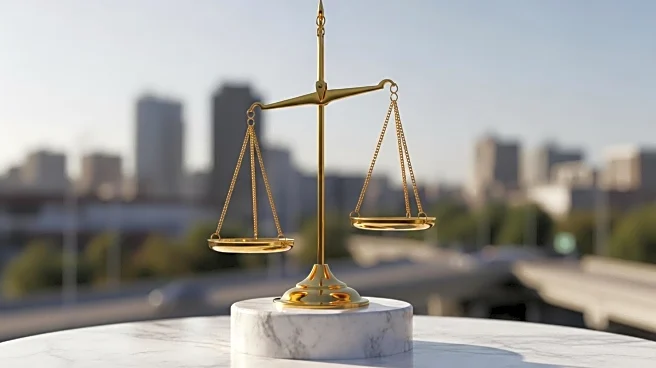What is the story about?
What's Happening?
President Trump has signed an executive order aimed at withholding federal funding from jurisdictions that do not incarcerate individuals accused of misdemeanors and lower-level crimes while awaiting trial. This move is part of an effort to enhance public safety but has sparked criticism for potentially endangering more people. Critics argue that the order undermines local governance and democratic reform, forcing jurisdictions to keep nonviolent suspects in jail, which may disproportionately affect marginalized communities. The order is seen as a threat to public safety, as jails are often unsafe and overcrowded, posing risks to both inmates and staff.
Why It's Important?
The executive order has significant implications for the U.S. justice system and public safety. By mandating the detention of nonviolent suspects, it could exacerbate issues of overcrowding and unsafe conditions in jails, leading to increased health risks and potential violations of constitutional rights. The order also raises concerns about the erosion of local governance and the ability of communities to implement reforms tailored to their needs. This situation highlights the ongoing debate over criminal justice policies and the balance between public safety and individual rights, with potential long-term impacts on societal trust and democratic principles.
What's Next?
The executive order may face legal challenges from advocacy groups and local governments seeking to protect their autonomy and reform efforts. There could be increased pressure on federal and state lawmakers to address the underlying issues of jail safety and criminal justice reform. As the debate continues, stakeholders may push for alternative approaches to public safety that focus on addressing root causes of crime, such as poverty and lack of access to healthcare. The order's impact on local jurisdictions and their ability to manage public safety effectively will likely be closely monitored.
Beyond the Headlines
The executive order reflects broader tensions in U.S. criminal justice policy, where efforts to enhance public safety can sometimes conflict with principles of fairness and equity. This situation underscores the need for comprehensive reforms that prioritize human rights and address systemic issues within the justice system. It also highlights the importance of community-based approaches to public safety that consider the diverse needs and challenges faced by different populations, emphasizing the role of local governance in shaping effective and just policies.















